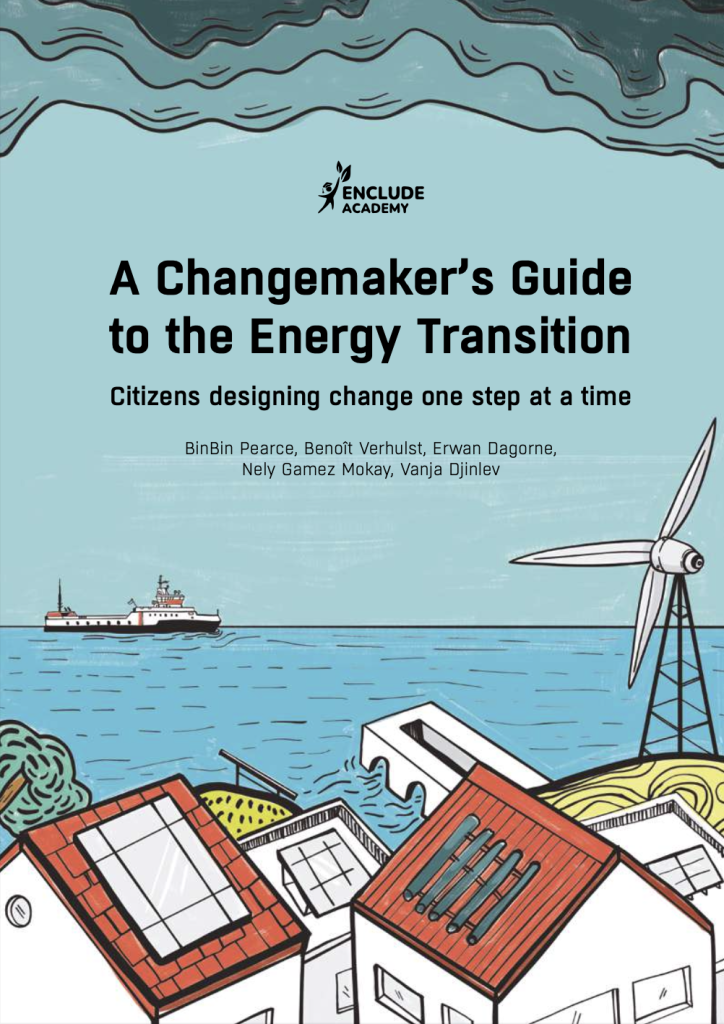CONTEXT AND OBJECTIVES
In the transformation of the energy system, citizens are becoming increasingly important as engaged, involved and shaping participants. This role of participatory energy consumers is reflected in the term “energy citizen”. ENCLUDE aims to share new knowledge and motivate the broadest possible population to contribute to the energy transition.
This transdisciplinary project will create a typology of the energy citizenship concept for diverse communities of citizens by investigating on-the-ground case studies of existing decarbonization activities. For the first time, insights about who is affected by energy citizenship and how this concept might affect decarbonization pathways will be incorporated into new models of managing and interacting with the energy system. The research aims to therefore operationalize the energy citizenship concept at multiple scales of policy and decision making.
MISSION MODALITIES
The concept of ‘energy citizenship’ is not yet a fixed and scientifically accepted concept. It is based on the idea that citizens have a particular relationship, a particular link with the energy system, but that this relationship can take many forms. The first phase of the project focuses on understanding and developing this concept: how it is used and explained so far, how it is expressed from an individual point of view and how it is expressed from a collective point of view. In a second stage, the project will develop models that show how citizens can play a role, based on the analysed case study. how the different forms of energy citizenship can be used. Thirdly, the project partner will try to identify whether these new forms of energy citizenship could lead to decarbonisation pathways.
In addition to these more theoretical and research-oriented missions, the project aims to be linked to on-the-ground activities through the creation of the ENCLUDE Academy for Energy Citizen Leadership, designed and animated by Missions Publiques. The Enclude Academy is made up of more than 50 stakeholders active in the field of energy who wish to develop this concept of energy citizenship in their own communities. The programme is designed to help people who are interested in making a difference in their own communities to reduce carbon emissions. It is for people who want support to implement concrete ideas they already have related to energy transition, or for those who want to find such an idea. The intended impact of this programme is to initiate a bottom-up mobilisation of energy citizenship by training influential individuals who can help change energy behaviour and engage other citizens in the transition. The results of the Academy have also been translated into a playbook that can be used by any future Energy Citizen!
Key figures
ADDED VALUE OF THE APPROACH
Enclude starts from the assumption that citizens and civil society have a role to play in the energy transition and can fill the gap left by public authorities in managing the energy system. It reverses the balance of power and the current perception that these issues can only be solved by public authorities. There is a willingness to empower citizens to take an interest, to create and develop local solutions, and to take back control of energy. This will lead to a new concept of citizenship, of empowerment, comparable to political citizenship.
The Energy Citizens for Inclusive Decarbonization (ENCLUDE) project addresses the need to better define, contextualize, and integrate energy citizenship into decision making processes. It acknowledges and includes different types of knowledge in order to produce strategies for mobilizing and scaling up energy citizenship initiatives. Through the implementation of a mixed-method and transdisciplinary research framework, ENCLUDE aims to rethink and redesign engagement processes between government, business, civil society organizations, and citizens for a decarbonized future for and by all.
« The Changemaker’s Guide to the Energy Transition », un livre de jeu qui vise à amener les citoyens, étape par étape, à concevoir, mettre en œuvre et réfléchir à une initiative qui leur est propre et qui est liée à la transition énergétique.




 Vidéos
Vidéos